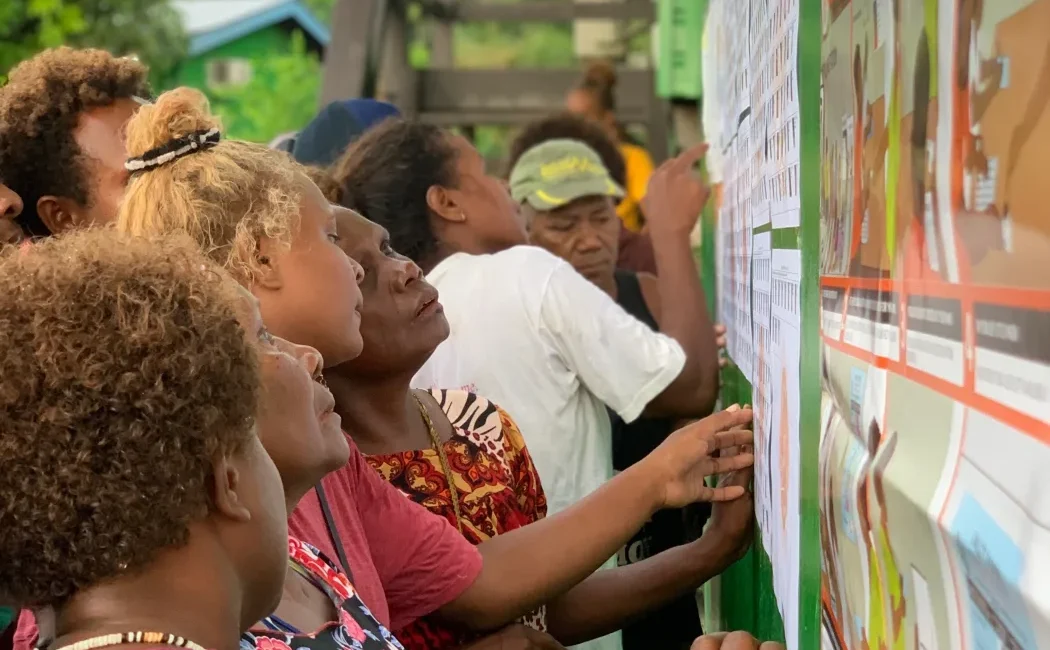
Photo: RNZ Pacific/ Koroi Hawkins
Electioneering is ramping up in Solomon Islands with political parties laying out their promises, and some even forming alliances.
The joint election is scheduled for 17 April
Caretaker prime minister Manasseh Sogavare’s Ownership Unity and Responsibility (OUR) Party has released its manifesto, with its president calling on voters to judge it by its track record in the coalition government.
The two major opposition parties – Democratic Alliance and Solomon Islands Democratic party – have signed a pre-election coalition, promising public service pay rises and job creation.
The two parties call themselves the Coalition for Accountability Reform and Empowerment (CARE) and say voting someone into Parliament just because they are a relative, or has given a bag of rice, or comes from the same church, is no longer an option.
CARE released its manifesto on Wednesday and said its flagship policies will focus on free education, improving heath services, creating employment, salary increases for government workers, reducing the cost of living, and investing in infrastructure.
The group’s leader and former opposition leader, Matthew Wale said voters need to elect good quality leaders to tackle the challenges faced by the country.
The Solomon Islands Electoral Commission is in the process of hiring and training electoral officials and volunteers.
This year is the first-time voters in the country will be electing their national and provincial representatives simultaneously.
Training
Meanwhile, public order management training is underway for Solomon Islands police ahead of the polls.
In Malaita and Western provinces, the training is being conducted in collaboration with the Australian Federal Policing Partnership Program.
The supervising director of Solomon Islands Police Response Department David Quiro said the training will not only help with the elections but ongoing police capability and capacity development.
Tensions are always high during Solomon Islands elections particularly around the announcement of results in the provinces and the formation of government.
In April 2006, Snyder Rini was forced to resign as prime minister a little over a week after being elected because of rioting and looting which broke out after he was announced as PM.





